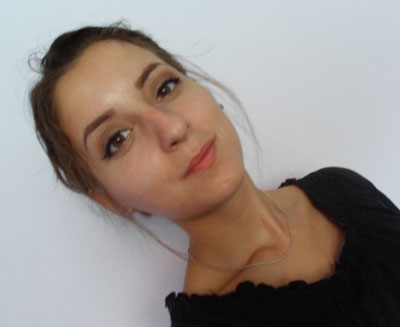Do you often stay up until the wee hours of the morning to study, clean, or just chill? According to a new longitudinal study of nearly 75,000 adults, staying up late isn’t something you may want to do often.1
In this study, researchers examined the impact of chronotype (your inclination to sleep at specific times) and sleep timing (when you actually go to sleep) on mental health in middle-aged and older adults.
What they found was that people who stayed up late, regardless of whether they slept in or got up early, exhibited worse mental health than those who went to bed early and woke up early. While the night owls who woke up early made out slightly better than those who slept in, the results suggest that staying up late may put you at an increased risk for mental health issues, including anxiety and depression.
Why Are Some People Night Owls?
Night owls are people who typically stay up late at night — sometimes even until the early morning. During these hours, they might work, study, or watch TV.
According to Baylor University, being a night owl might be linked to your genetics, but your behavior can also play a part.2
Certain behaviors like looking at your phone or watching TV can push your internal clock to a later bedtime. This is because these devices emit a blue light that suppresses melatonin production, and this hormone is important for facilitating sleepiness.3 Plus, watching TV, catching up on the news, and scrolling through social media apps can make it even more difficult to wind down your mind, even though many of us reach for just that when we can’t sleep.
Age can also be a factor in staying up late. Teens tend to be night owls because their circadian clock shifts by a few hours when they reach puberty, which is why they get tired later at night than when they were younger.4
What’s the Best Time to Go to Bed?
In the study, the researchers advised going to bed before 1:00 a.m. However, we spoke with a medical professional to get a more specific recommendation.
According to Dr. Farhan Malik, MD, the best time to go to bed is by 10:30 p.m. “This allows enough time to fall asleep before 11:00 p.m. when melatonin release peaks, signaling your brain to begin winding down for sleep. It’s also late enough to avoid the risk of waking up too early.”
Dr. Malik adds that going to bed past 11:00 p.m. sets you up for poor sleep. “Pushing your bedtime back cuts into time spent in slow-wave sleep and REM sleep, which are critical for body restoration, memory consolidation, and emotional regulation.”
Tips for Going to Bed Earlier
1. Create a Bedtime Routine
A relaxing bedtime routine can help you fall asleep earlier by allowing your body and mind to wind down. A good example would be a warm bath or reading a relaxing book before bed. Dr. Malik adds, “Establishing a calming pre-sleep routine where you avoid digital stimulation is one of the best ways to get the restorative rest you need every night.”
2. Don’t Sleep In
As tempting as it is to hit that snooze button in the morning, the longer you sleep in, the more likely you’ll want to stay up later. Sleeping in can set you back by making it harder to feel sleepy earlier at night.
3. Avoid Napping
Who doesn’t love a good nap after a hard day at work? As nice as it sounds, naps can also make it more difficult to feel tired earlier at night, especially if it’s a long nap. In most cases, a short, 15 to 30-minute afternoon nap shouldn’t set you back too far, but avoid anything longer than this if you’re trying to go to bed earlier.
Learn More: Types of Naps
4. Make Your Bedroom Ideal for Sleeping
If you think you can’t fall asleep before 1:00 a.m., you might want to look around your bedroom. Blackout curtains, an eye mask, and earplugs can help keep out light and noise. You should also keep your room temperature between 60 and 67 degrees, which is considered an optimal temperature range to foster good sleep.5 It also doesn’t hurt to have a comfortable mattress and bedding you look forward to sleeping on each night. That’s a great incentive for going to bed earlier.
Learn More: What’s The Best Sleep Temperature?
5. Turn Off Your Tech Devices
As mentioned, blue light from devices like cellphones or TVs impedes melatonin production, which can leave you feeling more alert at night.3 Plus, watching the news or scrolling through Instagram might leave you feeling stressed out instead of relaxed. Dr. Malik states, “A good rule of thumb is to start powering down your devices at least 60 minutes before bed. Do some light stretches or read a book instead. Your body and mind will thank you, as avoiding blue light leads to improved sleep quality and daytime alertness.”

Olivera Jancikin
Content Writer
About Author
Olivera is a content writer for Sleep Advisor and is enthusiastic about sleep. She firmly believes in the benefits of daytime naps on top of getting a full 8-hour sleep at night.
Combination Sleeper
Education & Credentials
- Certified Sleep Science Coach
References:
- Lok, Renske., et al. “Perils of the nighttime: Impact of behavioral timing and preference on mental health in 73,888 community-dwelling adults”. Psychiatry Research. 2024.
- Craine, Kelly. “Morning Lark or Night Owl: Baylor Researchers Highlight the Influence of Behavior on the Circadian Preferences of College Students”. Baylor University. 2023.
- “Blue light has a dark side”. Harvard Health Publishing. 2020.
- “Let Teenagers Sleep”. ScientificAmerican. 2023.
- “What’s the Best Temperature for Sleep?”. Cleveland Clinic. 2021.
